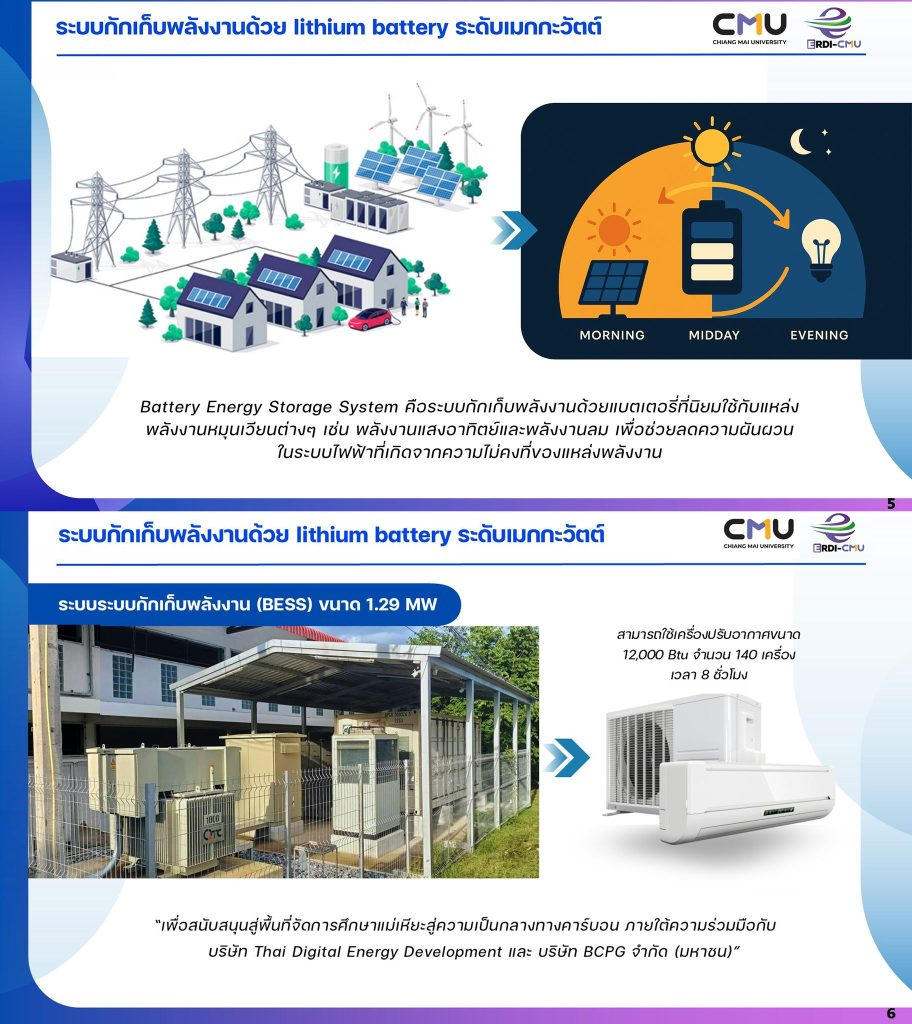Lithium battery energy storage system (Battery Energy Storage System – BESS)
The use of renewable energy, such as solar power, often suffers from a significant limitation: its production is intermittent. This means that the power system can only be generated during sunlight. This results in instability at night or on cloudy days without sufficient backup power.
To address this issue, Chiang Mai University has installed a 1.29-megawatt lithium-ion battery energy storage system (BESS). This system acts as a large battery, storing energy generated from solar cells during the day and supplying power back to the system during periods when electricity generation is unavailable, such as at night or when the load exceeds production.
Highlights of the BESS system at CMU:
Reliable backup power: This system provides continuous, uninterrupted power supply, helping to maintain the stability of the university’s energy system.
Heavy load capacity: It can power up to 140 12,000 BTU air conditioners simultaneously for 8 hours.
… In a world transitioning to renewable energy, having an efficient energy storage system will be crucial for power management in large organizations such as universities, hospitals, or industrial zones. This will reduce the risk of sudden power outages and support the future expansion of electricity use from smart devices and electric vehicles.
Chiang Mai University’s BESS system is therefore not just a technical infrastructure, but also the “foundation of a smart energy system” that truly connects technology with sustainability.



